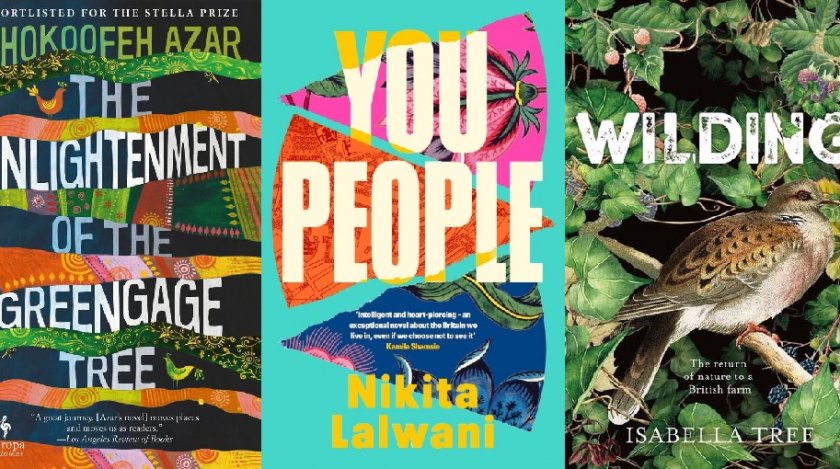
Biography
Hilary Mantel was born in Glossop, Derbyshire, England on 6 July 1952.
She studied Law at the London School of Economics and Sheffield University. She was employed as a social worker, and lived in Botswana for five years, followed by four years in Saudi Arabia, before returning to Britain in the mid-1980s. In 1987 she was awarded the Shiva Naipaul Memorial Prize for an article about Jeddah, and she was film critic for The Spectator from 1987 to 1991. Her novels include Eight Months on Ghazzah Street (1988), set in Jeddah; Fludd (1989), set in a mill village in the north of England and winner of the Winifred Holtby Memorial Prize, the Cheltenham Prize and the Southern Arts Literature Prize; A Place of Greater Safety (1992), an epic account of the events of the French revolution that won the Sunday Express Book of the Year award; A Change of Climate (1994), the story of a missionary couple whose lives are torn apart by the loss of their child; and An Experiment in Love (1995), about the events in the lives of three schoolfriends from the north of England who arrive at London University in 1970, winner of the 1996 Hawthornden Prize. The Giant, O'Brien (1998) tells the story of Charles O'Brien who leaves his home in Ireland to make his fortune as a sideshow attraction in London.
In 2003, she published Giving Up the Ghost: A Memoir - an autobiography in fiction and non-fiction, taking the reader from early childhood through to the discoveries in adulthood that led her to writing; and Learning to Talk: Short Stories (2003). Beyond Black (2005) tells the story of Alison, a Home Counties psychic, and her assistant, Colette. It was shortlisted for a 2006 Commonwealth Writers Prize and for the 2006 Orange Prize for Fiction.
In 2006, Hilary Mantel was awarded a CBE. Her novel, Wolf Hall (2009), was the winner of the 2009 Man Booker Prize for Fiction and the Walter Scott Prize andwas shortlisted for the 2009 Costa Novel Award and 2010 Orange Prize for Fiction.
A sequel to Wolf Hall, entitled Bring Up the Bodies, was published in 2012 and won the 2012 Man Booker Prize for Fiction.
Dame Hilary Mantel died on 22 September 2022.
Critical perspective
While historians are sometimes described as frustrated novelists, Hilary Mantel describes herself as a frustrated historian: ‘I only became a novelist because I thought I had missed my chance to become a historian. So it began as second best.’ When she was writing Wolf Hall, she created a card index system to ensure her cast of characters were in the right place at the right time. But this does not mean that Mantel writes like a historian. Mantel’s fiction captures the classic contradiction of the historical novel: searching for veracity, truth and authenticity while all the time questioning what we thought we knew about the past.
Take the opening of her most celebrated novel: Wolf Hall. It begins in Putney in 1500, and the young Thomas Cromwell has just been floored by his father:
'Inch by inch. Inch by inch forward. Never mind if he calls you an eel or a worm or a snake. Head down, don’t provoke him. His nose is clotted with blood and he has to open his mouth to breathe. His father’s momentary distraction at the loss of his good boot allows him the leisure to vomit. "That’s right," Walter yells. "Spew everywhere." Spew everywhere, on my good cobbles. "Come on, boy, get up. Let’s see you get up. By the blood of creeping Christ, stand on your feet."'
The wider narrative arc of this story involves Cromwell’s rise from these desperate, bloody beginnings as he leaves behind a worm’s eye view of world for the vertiginous heights of the king’s court. But Thomas’s lowly childhood beginnings never entirely let him go. They leave their marks on him like the glowing irons of his father’s smithy.
In the older man, we will see the relentless determination that Mantel conveys above in the spare, incrementalism of those two opening sentences: ‘Inch by inch. Inch by inch forward’. We will see it in the quick, calculating decision-making (‘Head down, don’t provoke him’) that will become an enduring survival mechanism. We see it in his shrewd handling of other tyrannical bullies, not least Henry VIII. Four centuries before Freud, Mantel gives her central character a psychological realism that is deftly handled through free indirect discourse and the seamless moves between external third person narration, the voice of Walter, and Thomas’s silent words of warning to himself.
It is Wolf Hall’s skilful vacillation between past and present, interior and external narration, public and private, that allows Thomas Cromwell’s beginnings to become more than mere affirmations of what the man will become. Rather, they allow the contemporary reader to challenge and question history’s judgement of the man. In other words, Wolf Hall allows us to empathise; to defer our judgement.
As Mantel once observed in interview: ‘The contradictions and the awkwardness—that’s what gives historical fiction its value. Finding a shape, rather than imposing a shape. And allowing the reader to live with the ambiguities. Thomas Cromwell is the character with whom that’s most essential. He’s almost a case study in ambiguity.’
These contradictory characteristics remain at the centre of the second book in Mantel’s critically acclaimed trilogy, Bring up the Bodies:
'His children are falling from the sky. He watches from horse-back, acres of England stretching behind him; they drop, gilt-winged, each with a blood-filled gaze. Grace Cromwell hovers in thin air. She is silent when she takes her prey, silent as she glides to his fist. But the sounds she makes then, the rustle of feathers and the creak, the sigh and riffle of pinion, the small cluck-cluck from her throat, these are sounds of recognition, intimate, daughterly, almost disapproving. Her breast is gore-streaked and flesh clings to her claws.'
Mantel’s stylised opening combines the literal and the figurative. It both inverts and intensifies the associations of Mantel’s arresting title as bodies appear to fall rather than rise. The whirling panoramic scene takes place beneath the open skies around Wolf Hall with the predatory Cromwell perched at its pivotal centre. He is flying his dead daughters who live on hawkishly in the names given to the circling birds of prey. Bring up the Bodies, this scene seems to casually announce, will revolve around cycles of killing: ‘all summer has been like this’ the narrative continues, ‘a riot of dismemberment’. Yet also condensed in this grim yet graceful image of flight is an idea of transcendent beauty marked by the tender, gentle affection for a dead daughter: ‘the small cluck-cluck from her throat, these are sounds of recognition, intimate, daughterly, almost disapproving.’
Mantel’s description of Cromwell as a case study in ambiguity seems spot on here. Not without controversy, Mantel has employed the same rounded, unromantic forensics to her cool analyses of modern historical figures and contemporary power dynamics. Whether fictionalising an attempt to murder Margaret Thatcher or comparing the dress codes and body images of Princess Diana and Kate Middleton, Mantel has not shied away from tackling the more discomforting desires and contradictions of British society.
Unsurprisingly perhaps, satire tends to be fundamental to Mantel’s writing. In Wolf Hall, it lingers at the margins of the text, in the epigraph from Vitruvius. But it remains central to earlier work, including her first two novels, Every Day is Mother’s Day (1985) and Vacant Possession (1986) which are social comedies with a keen satirical impulse. Along with the historical novel, life writing and semi-autobiographical fiction form a dominant strand of her work to date. Flud (1989) draws on the author’s Catholic upbringing in Glossop, as does An Experiment in Love (1995). Eight Months of Ghazzah Street (1988) captures Mantel’s four years in Saudi Arabia, while Giving up the Ghost (2003) and Learning to Talk (2003) return to childhood.
While she is best known today for her monumental trilogy, Mantel is also a skilled short story writer. Collections like The Assassination of Margaret Thatcher (2015) demonstrate an economical restraint, and an almost austere minimalism that reads like a deliberate departure from the detailed verisimilitude of Wolf Hall. In fact, if the trilogy carries with it a certain formal predictability, what characterises Mantel’s oeuvre as a whole is its very restlessness towards style and genre.
James Procter, 2017

